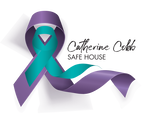|
The guiding principles of the program are based on a strengths-based, solution-focused philosophy, in which clients have voice, ownership and access.
Counseling, advocacy and safety planning are available to clients regardless of whether they are in the process of leaving, have already left, or even if they are not planning to leave their partners. All services, both residential and non-residential, are free, voluntary and confidential. In order to achieve the program's mission, the following services are offered: Crisis Line: The crisis line is staffed by trained advocates or volunteers 24 hours a day, 365 days a year. Crisis line workers are trained in crisis intervention, domestic violence, and sexual assault. They are able to provide information about community resources that survivors need to remain safe. Over 1000 calls are answered every year. Some of the callers are looking for information. Some need validation of their feelings, while others are seeking a safe place to stay. Many callers are seeking counseling to help them deal with the dynamics of domestic violence or sexual assault. Other callers are simply concerned and worried about their loved ones. Shelter: The shelter operates 24 hours a day, 365 days a year. Shelter services provide a place where survivors can come by themselves or with their children and find physical safety in a home-like setting. At the shelter survivors get a chance to meet and talk with other survivors and share support. Case managers assist clients in finding the resources they need to obtain suitable housing, a job, medical care, therapy or other services. The Case Managers can also assist with locating services for any additional needs identified by the client such as: mental or physical health, including sobriety. Prior to clients’ exit from the shelter, the Case Manager works with them to create a Safety Plan and an Aftercare Plan. See Frequently Asked Questions (FAQ) section for more info. Children’s Programming: The shelter also offers families the services of our Children’s Program, which include Child Needs Assessments completed between mothers and the Children’s Program Advocate. These assessments are used to help identify and begin communication with local service providers who can assist in meeting child(ren)’s needs. In addition, the Children’s Program provides parenting education, child development education, enrichment activities planned for the children residing in the shelter, and domestic violence education for children. |
Here's a list of donation ideas for our community.
Counseling:
Therapeutic services are offered, free of charge for survivors. Transitional Supportive Housing: The Transitional Supportive Housing Program (TSH) is a 24-month housing program that helps domestic violence survivors and their children. This program aims to support survivors with stable housing while they address financial, safety, legal or other issues as a result of domestic violence. Survivors will also be provided with emotional support and counseling, case management services, domestic violence education, transportation assistance, children’s programming and much, much more while in this program. Non-Residential Services: All of our services including, support groups, legal advocacy and case management are available to survivors who need them regardless of where they are staying. Survivors in the community are also eligible to receive food, clothing and personal hygiene products when available. Support Groups: Two support groups are currently being offered. The groups are facilitated by a member of the professional staff. In group sessions survivors have the opportunity to meet other survivors, talk about common problems and share successes. Facilitators provide education about domestic and sexual violence, healthy relationships and any related topics that survivors may care to discuss. First Response Team: Following an incident of domestic or sexual violence in Lenawee County, when the assailant has been arrested, victims are visited - either at their home or in the hospital - by the First Response Team. These are trained volunteers, who talk with the victim about the assault, their relationship and how they are feeling. They help them to sort out their options and talk about our services. They also provide information and education about the legal system and what to expect next. |
